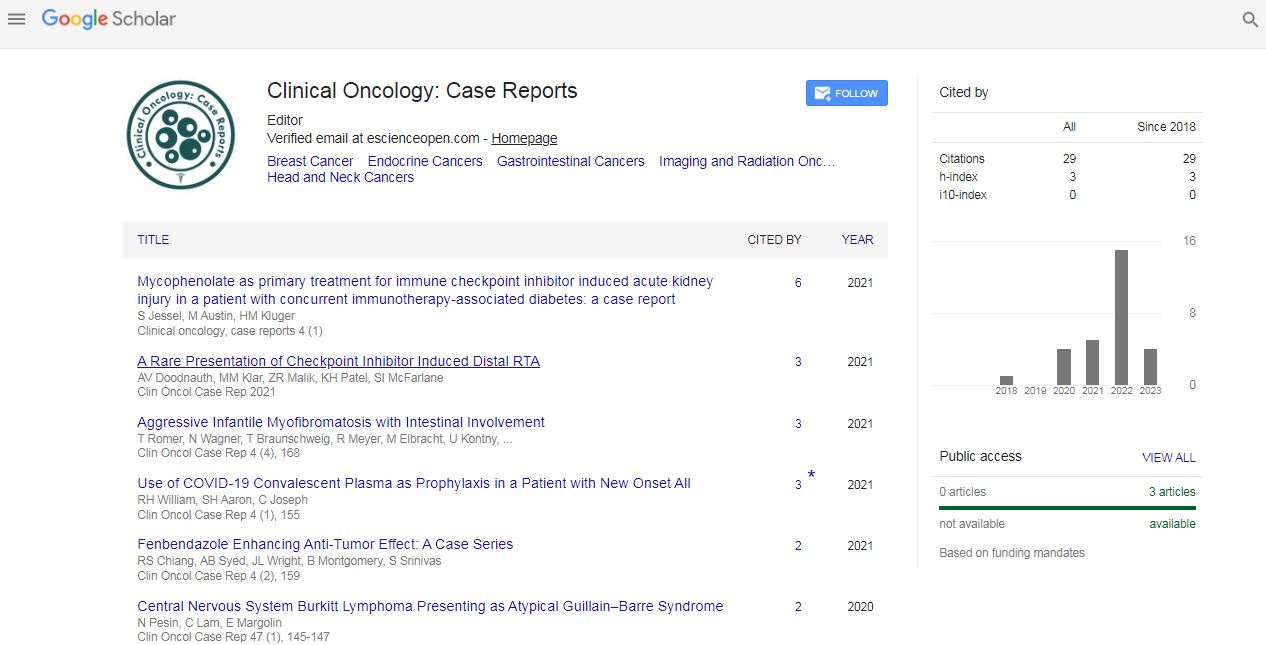Case Report, Clin Oncol Case Rep Vol: 3 Issue: 6
Autoimmune Toxicity Following Nivolumab and Ipilimumab Therapy For Hepatocellular Carcinoma-An Interdisciplinary Challenge
Matthias Mezger1,2*, Cara Harms3, Karolin Schmoll1,2, Aneke Gansewig4, Ingo Eitel1,2, Nikolas Von Bubnoff5 and Tobias Graf1,2
1Departments of Cardiology, Angiology and Intensive Care Medicine, University Heart Center Lubeck, Lubeck, Germany
2German Centre for Cardiovascular Research (DZHK), Partner Site Hamburg/Kiel/ Lübeck, Lübeck, Germany
3Department of Gastroenterology, Nephrology, Endocrinology and General Internal Medicine, University Hospital Lübeck, Lübeck, Germany
4Department of Pharmacy, University Hospital Lubeck, Germany
5Department of Hematology and Oncology, Medical Center, University of Schleswig- Holstein, Lübeck, Germany
*Corresponding Author:
Matthias Mezger
Department of Cardiology
Angiology and Intensive Care Medicine
University Heart Center Lubeck
Lubeck, Germany, Ratzeburger Allee 160
23538 Lübeck, Germany
E-mail: Matthias.Mezger@UKSH.de
Received: September 22, 2020 Accepted: December 02, 2020 Published: December 21, 2020
Citation: Mezger M, Harms C, Schmoll K, Gansewig A, Eitel I, et al. (2020) Autoimmune Toxicity Following Nivolumab and Ipilimumab Therapy For Hepatocellular Carcinoma-An Interdisciplinary Challenge. Clin Oncol Case Rep 4:1
Abstract
Abstract
Over the last years, several new drugs have been launched for the treatment of cancer. Immune checkpoint blockade suppresses intrinsic down-regulators of immunity, such as cytotoxic T-lymphocyte Antigen 4 (CTLA-4) and Programmed Cell Death 1 (PD-1) or its ligand, Programmed Cell Death Ligand 1 (PD-L1). Immune checkpoint blockade enhances patient´s immune system and increased survival rates for different cancer subtypes. However, immune checkpoint blockade can lead to autoimmunity with a multitude of side effects that involve the heart, gastrointestinal tract, endocrine glands, skin, CNS and liver. We here present the case of a patient who was admitted to the emergency department with stroke- like symptoms. Whilst monitoring on stroke- unit was ongoing, he developed complete heart block and emergency transvenous pacemaker implantation had to be done. For further monitoring he was transferred to the Intensive Care Unit (ICU). Here, he developed severe shock and eventually died. Severe immune-related adverse events associated with cancer immunotherapy are not uncommon and medical professionals from different clinical departments should be aware of these potential life-threatening events.
 Spanish
Spanish  Chinese
Chinese  Russian
Russian  German
German  French
French  Japanese
Japanese  Portuguese
Portuguese  Hindi
Hindi 